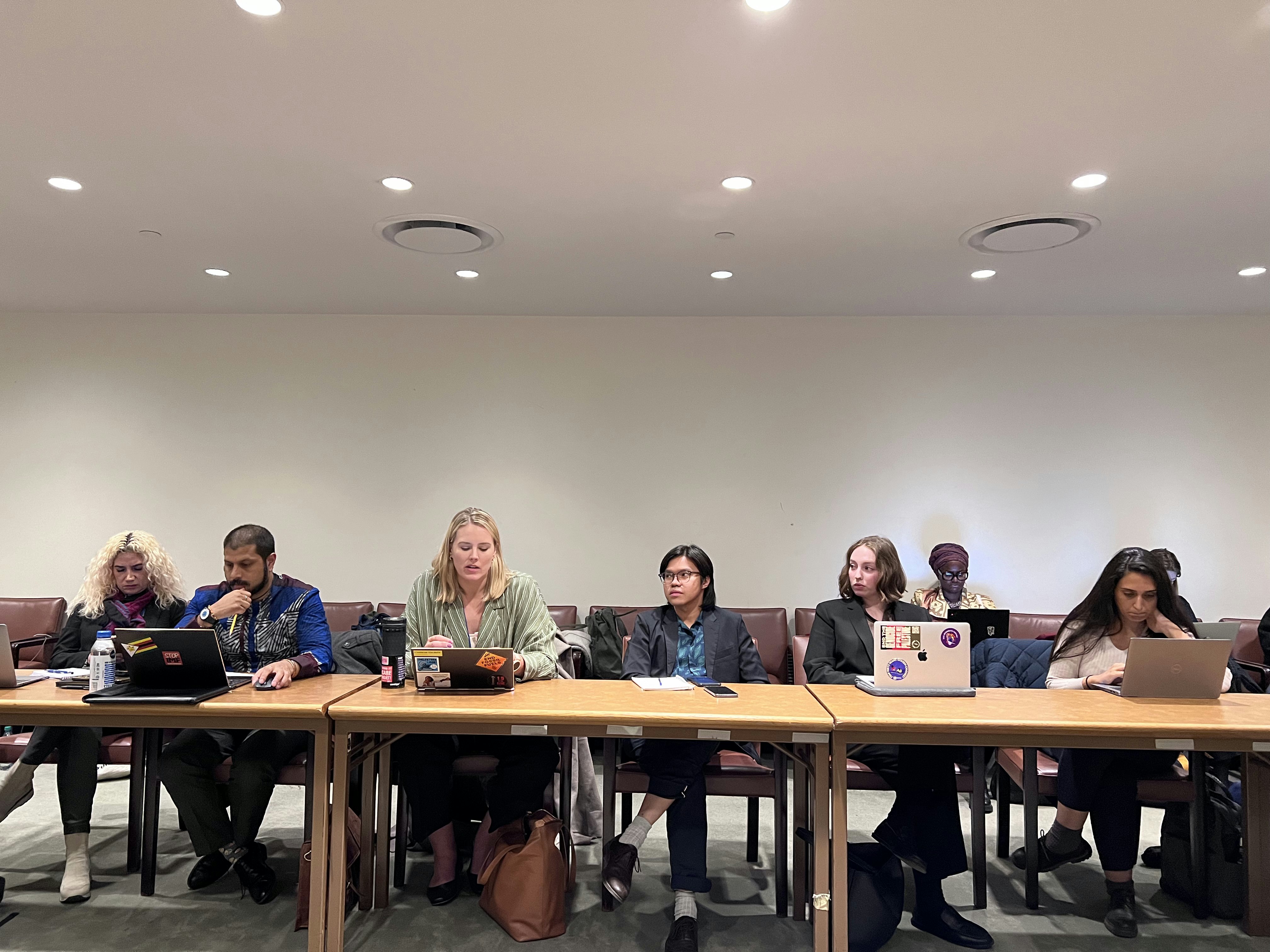Side Event at MS Hearing "FfD4: Civil Society Checklist for Member States"
The Civil Society FfD Mechanism hosted an event at the Multistakeholder Hearing to share its Checklist for Member States towards FfD4.

At this critical side event during the FfD4 Multistakeholder hearing on October 28, the CS FfD Mechanism convened a discussion to share its recently launched "Checklist to Member States."
The event, moderated by Katie Tobin of WEDO, featured impactful insights from speakers Rodolfo Lahoy (IBON International), Emilia Reyes (Equidad de Género Ciudadanía y Familia), Erica Levenson (Regions Refocus), and Jason Braganza (AFRODAD).
Key Themes from the Discussion:
Debt (Jason Braganza)
Jason addressed the low ambition levels for FfD4 and stressed the need to maintain hard-won commitments from the Africa Group, particularly around the UN Tax Convention. He emphasized the importance of a global framework for sovereign debt that includes robust mechanisms for debt transparency, a public debt registry, and reform of credit rating agency (CRA) practices, which often artificially increase the cost of credit for African nations. He also criticized the Common Framework as failing to address systemic issues.
Private Finance & IDC (Rodolfo Lahoy)
Rodolfo argued for moving the International Development Cooperation (IDC) Convention under the UN to address democratic deficits in development funding. He challenged the power dynamics in development, where donor-driven agendas shape outcomes, and advocated for reframing unmet Official Development Assistance (ODA) as "ODA debt." Lahoy critiqued Bretton Woods institutions’ self-reforms as inadequate, urging an overhaul to promote inclusivity, strengthen national development banks, and end the "one dollar, one vote" structure.
Trade (Erica Levenson)
Erica highlighted the role of trade in development, underlining disparities in how trade affects the Global North and Global South. She noted how investor-state dispute settlements (ISDS) primarily benefit investors from powerful economies, often leaving Southern countries vulnerable to lawsuits by large polluting corporations. Erica called out unilateral trade measures like the EU’s carbon border adjustment mechanism as tools of manipulation that reinforce inequities.
Climate (Emilia Reyes)
Emilia discussed the interconnected nature of debt, climate, and economic growth, questioning the assumption that economic growth can address debt without exacerbating exploitation. She argued for a post-extractive economic transformation that challenges the deadly logic of capital, emphasizing the need to rethink development in terms of sustainability and justice.
Overall, the event reinforced the CS FfD Mechanism’s call for a fundamental shift in development financing, where transformative policies that address the root causes of global economic disparities and prioritize the wellbeing of people and the planet are prioritized. The Checklist serves as a guide for Member States, pushing for ambitious FfD4 commitments that address systemic issues in debt, finance, trade, and climate as well as other key pillars of FfD including tax, technology, .